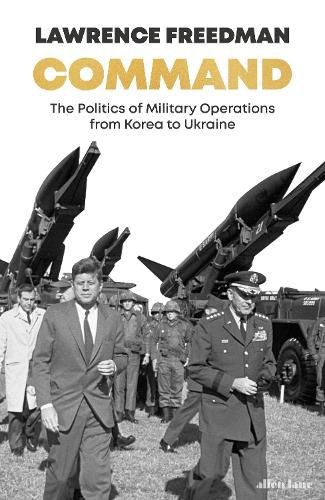Readings Newsletter
Become a Readings Member to make your shopping experience even easier.
Sign in or sign up for free!
You’re not far away from qualifying for FREE standard shipping within Australia
You’ve qualified for FREE standard shipping within Australia
The cart is loading…






A new history of command from ‘one of Britain’s foremost military thinkers’ (Observer)
Throughout history, the concept of command - as both a way to achieve objectives and as an assertion of authority - has been essential to military action and leadership. But, as Sir Lawrence Freedman argues, it is also deeply political. Command has been reconstructed and revolutionised since the Second World War by nuclear warfare, small scale guerrilla land operations and cyber interference. Freedman here takes a global perspective, systematically investigating the practice and politics of command since 1945 through a wide range of conflicts from the French Colonial Wars, the Cuban Missile Crisis and the Bangladesh Liberation War to North Vietnam’s Easter Offensive of 1972, the Falklands War, the First Chechen War and the Iraq War. By highlighting the political nature of strategy, Freedman shows that military decision-making cannot be separated from civilian life and that commanders must now have the sensibility to navigate politics as well as warfare.
$9.00 standard shipping within Australia
FREE standard shipping within Australia for orders over $100.00
Express & International shipping calculated at checkout
A new history of command from ‘one of Britain’s foremost military thinkers’ (Observer)
Throughout history, the concept of command - as both a way to achieve objectives and as an assertion of authority - has been essential to military action and leadership. But, as Sir Lawrence Freedman argues, it is also deeply political. Command has been reconstructed and revolutionised since the Second World War by nuclear warfare, small scale guerrilla land operations and cyber interference. Freedman here takes a global perspective, systematically investigating the practice and politics of command since 1945 through a wide range of conflicts from the French Colonial Wars, the Cuban Missile Crisis and the Bangladesh Liberation War to North Vietnam’s Easter Offensive of 1972, the Falklands War, the First Chechen War and the Iraq War. By highlighting the political nature of strategy, Freedman shows that military decision-making cannot be separated from civilian life and that commanders must now have the sensibility to navigate politics as well as warfare.